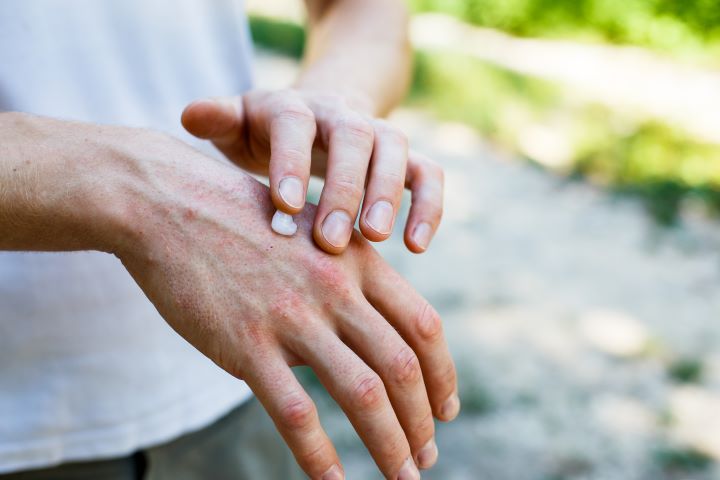Effective Scalp Psoriasis Treatments
Scalp psoriasis affects millions of people worldwide, causing uncomfortable symptoms like scaling, itching, and irritation. This chronic autoimmune condition occurs when skin cells grow too quickly, forming thick, silvery patches on the scalp. Understanding the various treatment options available can help individuals manage their symptoms effectively and improve their quality of life. From medicated shampoos to prescription treatments, multiple approaches exist to address this challenging condition.

Managing scalp psoriasis requires a comprehensive understanding of available treatment methods and their effectiveness. This condition, which affects approximately 2-3% of the global population, can significantly impact daily life through persistent itching, flaking, and discomfort. The key to successful management lies in identifying the right combination of treatments that work for your specific situation.
Best Moisturiser for Scalp Management
Moisturizing plays a crucial role in scalp psoriasis treatment by helping to soften scales and reduce irritation. Coal tar-based moisturizers have shown particular effectiveness, as they help slow down the rapid skin cell production characteristic of psoriasis. Salicylic acid-containing products also work well by gently exfoliating dead skin cells and allowing other treatments to penetrate more effectively.
Ceramide-rich moisturizers help restore the skin barrier function, which is often compromised in psoriasis patients. These products should be applied to damp scalp areas to lock in moisture. Natural oils like coconut oil and jojoba oil can provide additional moisturizing benefits, though they should be used in conjunction with, not as replacements for, medical treatments.
How to Get Rid of Dry Itchy Scalp Symptoms
Addressing the dry, itchy aspects of scalp psoriasis requires a multi-pronged approach. Gentle cleansing with lukewarm water helps prevent further irritation, while harsh scrubbing should be avoided as it can worsen symptoms. Anti-inflammatory ingredients like zinc pyrithione and ketoconazole can help reduce itching and scaling.
Topical corticosteroids remain one of the most effective treatments for reducing inflammation and itching. These prescription medications come in various strengths and formulations, including foams, gels, and solutions specifically designed for scalp application. Calcipotriene, a synthetic form of vitamin D, offers another effective option that can be used long-term with fewer side effects than steroids.
Medical Treatment Options
Prescription treatments offer more potent solutions for moderate to severe scalp psoriasis. Topical immunomodulators like tacrolimus and pimecrolimus can be particularly useful for sensitive areas around the hairline. These medications work by suppressing the immune system’s overactive response that causes psoriasis symptoms.
For severe cases, systemic treatments may be necessary. Biologics, which target specific parts of the immune system, have shown remarkable success in treating scalp psoriasis. Methotrexate and cyclosporine represent traditional systemic options, though they require careful monitoring due to potential side effects.
Light Therapy and Alternative Approaches
Phototherapy using ultraviolet B (UVB) light can be effective for scalp psoriasis, though treating hair-covered areas presents unique challenges. Specialized combs and devices have been developed to deliver UV light directly to the scalp. This treatment typically requires multiple sessions over several weeks to show significant improvement.
Excimer laser therapy offers a more targeted approach, focusing high-intensity UV light on specific psoriatic plaques. This method can be particularly useful for localized scalp lesions and may require fewer sessions than traditional phototherapy.
| Treatment Type | Provider/Product | Cost Estimation |
|---|---|---|
| Medicated Shampoos | Neutrogena T/Gel, Selsun Blue | $8-15 per bottle |
| Prescription Topicals | Clobetasol foam, Calcipotriene | $50-200 per tube |
| Dermatologist Consultation | Local dermatology practices | $200-400 per visit |
| Phototherapy Sessions | Specialized clinics | $75-150 per session |
| Biologic Treatments | Hospital/clinic administration | $1,000-5,000 per month |
Prices, rates, or cost estimates mentioned in this article are based on the latest available information but may change over time. Independent research is advised before making financial decisions.
Lifestyle Modifications and Prevention
Stress management plays a significant role in psoriasis control, as stress can trigger flare-ups. Regular exercise, adequate sleep, and relaxation techniques can help reduce stress levels. Dietary modifications, while not directly treating psoriasis, may help reduce inflammation. Some patients report improvements when avoiding trigger foods like processed foods, alcohol, and excessive sugar.
Proper hair care practices are essential for managing scalp psoriasis. Using gentle, fragrance-free shampoos and avoiding harsh chemicals or excessive heat styling can prevent additional irritation. Regular but gentle brushing helps remove loose scales without damaging the scalp.
Successful scalp psoriasis management often requires patience and persistence. What works for one person may not work for another, making it important to work closely with healthcare providers to develop an individualized treatment plan. Regular monitoring and adjustment of treatments ensure optimal results while minimizing side effects.
This article is for informational purposes only and should not be considered medical advice. Please consult a qualified healthcare professional for personalized guidance and treatment.




